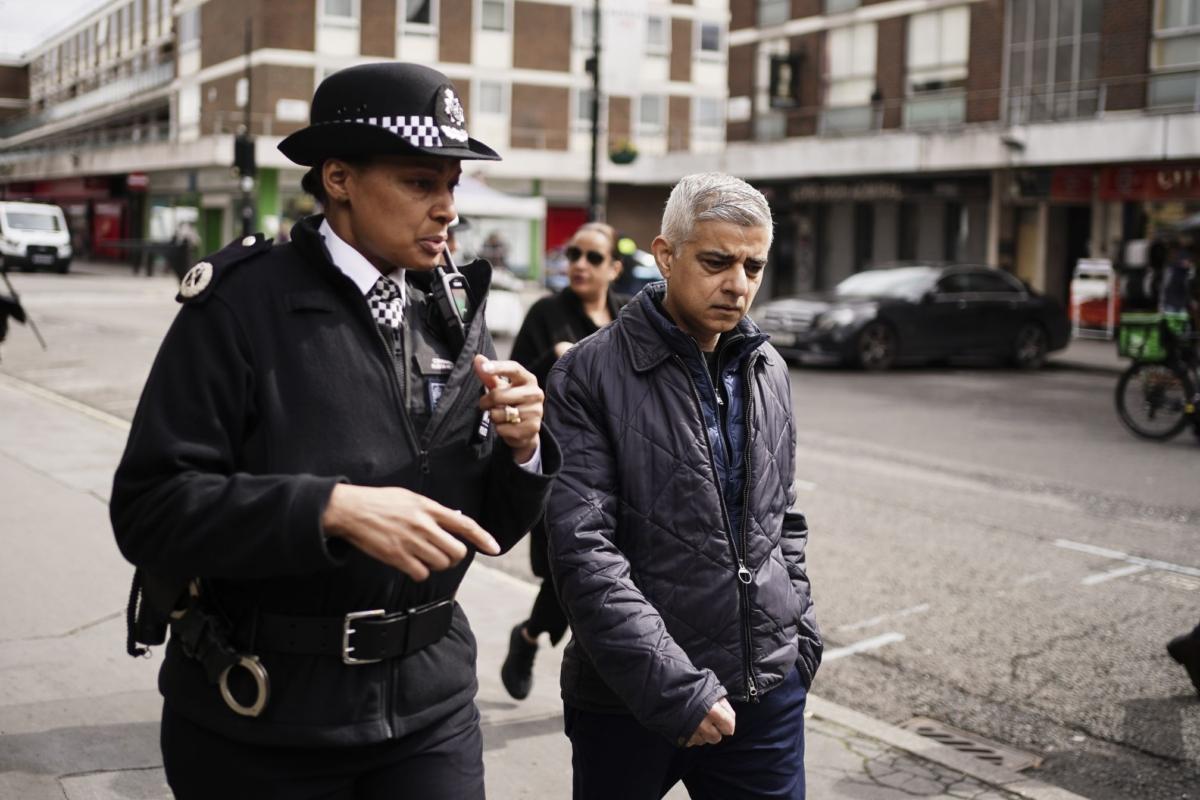The Metropolitan Police has announced it will stop using the Gangs Violence Matrix and replace it with another intelligence tool after years of criticism by campaigners who claimed it racially profiled young black men.
Assistant Commissioner Matt Twist said in a statement: “From Tuesday 13 February, the Gangs Violence Matrix will no longer exist.”
Critics of the matrix, which was designed to identify members of London’s many gangs and keep tabs on their activities and feuds, argued the criteria used to put people on there was too vague and black people were over-represented on the list.
In 2022 around 2,000 people were on the matrix and 79 percent of them were black.
In November 2022 the Met was taken to the High Court by campaigners. It had been due to fight the case but agreed to settle after accepting the matrix had an “unacceptably high” rate of racial disproportionality, and breached the right to a private and family life under the European Convention on Human Rights.
As part of the settlement, the Met agreed to remove more than 1,000 names from the matrix and said it would share with those individuals what data had been recorded about them.
Rowley Defended Gangs Matrix in 2022
Ms. Abbott asked him, “Has the gangs matrix outlived its usefulness?”Sir Mark replied: “I don’t think it has. There is a point that the way we protect people is by targeting the most dangerous. The public would expect us to work out who are the most dangerous offenders and focus the police’s efforts on protecting the people they prey upon.”
He said the Met wanted to stop the “men of violence” who drive the violent behaviour that leads to gang and knife crime.
“The gangs matrix is our way of doing that ... we have taken 1,100 people off the matrix and tightened it hugely. But the fundamental principle of how do we stop people being stabbed and shot in London, part of it is about targeting the people we identify as dangerous and we will continue to do that,” the commissioner added.
Ms. Abbott responded, “So you don’t accept, as Amnesty International for example has said, that it needs to be dismantled in its entirety?”
Sir Mark replied: “It’s easy to make glib comments as some of those reports sometimes do. My job is to protect people in London and the way I do it, in part, is by having officers equipped and briefed with the right intelligence to target the most dangerous and prolific offenders and I will never apologise for doing that.”
During the same meeting Sir Mark pointed out, “Sadly young black men in London are 12 times more likely to be murdered than young white men ... and some years it’s been 20 times.”
But on Tuesday, the Met announced the end of the matrix.

Vision of More ‘Evidence-Based’ Approach
Mr. Twist said: “In October 2022 we committed to the complete redesign of the Gangs Violence Matrix. We have been considering how we can best make assessments and meet operational challenges. This has been informed by the commissioner’s vision to become more evidence-based and data driven in our approach, as set out in our plan, A New Met for London.”“We have listened to the concerns about disproportionality on the Gangs Violence Matrix and have spent the past year engaging with community members and relevant stakeholders, to ensure we have complete transparency about our new approach to tackling the most violent and harmful offenders in London,” he added.
Mayor of London Sadiq Khan welcomed the move and said, “The Violence Harm Assessment is a significant change that will help the Met pursue the most prolific offenders and, where appropriate, provide an opportunity to work with partners to support those who are vulnerable to violence, gangs and criminal exploitation.”
Mr. Khan, who is facing an election in May, said, “I will continue to support and hold the Met to account to ensure the new approach is effective in tackling gang violence and has the confidence of all of our diverse communities as we work to build a safer and fairer London for everyone.”
Gangs, which often have associated drill music artists, are believed to be responsible for much of the violent crime and drug dealing in London.
The trial was told a key figure in the Church Road Soldiers was a rapper and grime artist called Nines, whose real name is Courtney Freckleton. In 2009 his brother Wayne Freckleton was shot dead in a barber’s shop, apparently in revenge for a double murder.
In the spring and summer of 2019, Nines and his rival K-Koke—who is linked to the Stonebridge gang—exchanged insults in videos on YouTube shortly before Mr. Small was murdered.







